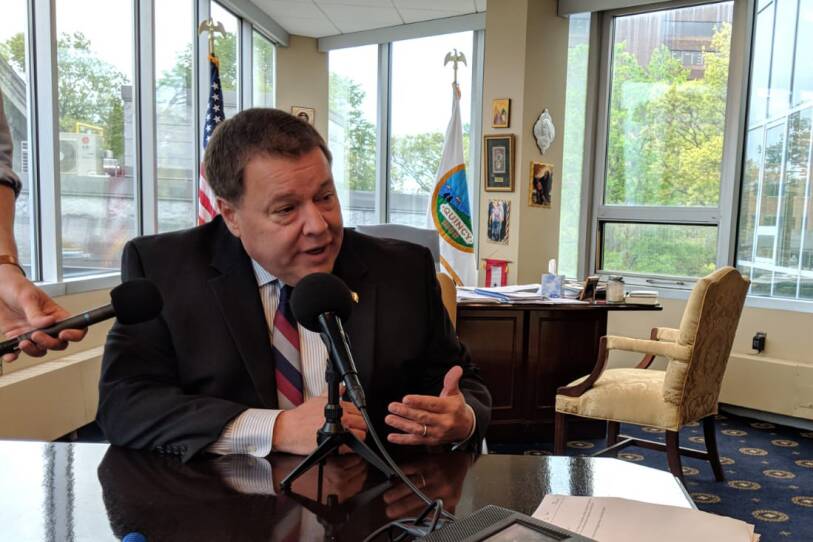Local residents of Quincy say that a delay in salary increases for city councilors and Mayor Thomas Koch falls short of what is necessary.
They’re pushing for more public accountability in a monthslong fight by elected leaders to boost their own wages, despite public opinion being sour on the matter.
“We still don’t understand why they’re just deferred and not repealed,” said Joe Murphy, a local resident and founder of advocacy group A Just Quincy. “What we’d like to see is for them to repeal these ordinances and start over with a procedure that makes more sense and includes public input.”
In June, councilors approved the mayor’s request to raise his salary by 79% — from about $159,000 to $285,000 — and to also raise their own salaries from $29,800 to $44,500. The raises were slated to take effect on Jan. 1, but a number of residents and advocates vocalized their discontent for the massive pay boosts with no public discourse.
Groups like WeVoters and A Just Quincy gathered signatures in an attempt to force City Council to re-vote on the ordinances, but fell short of the 8,000 signatures necessary within the mandated 20-day period.
In response to the pushback, the city recently posted on Facebook that it will defer the raises until the start of the next elected terms: 2028 for the mayor, and 2026 for nine councilors.
“There’s a lot of important work ahead, and we don’t need distractions. I love this job, I love Quincy, and I’m committed to making sure we stay on track for progress,” said Koch in the Facebook statement.

Koch has been in office since 2008 and began his seventh term this year. Earlier this year, firm Dorminson Consulting told councilors that a salary of $298,000 to $370,000 would be appropriate for Koch, making him one of the highest paid mayors in the country.
“We’ve listened to feedback from the community and, after careful consideration, we’re making the prudent decision to defer these raises,” said Council President Ian Cain.
The statement also said the deferred raises are “codified through the original ordinance, and a formal process will be established to guide any future adjustments.” Cain, who didn’t respond to request for comment on Thursday, said the “structured approach” will allow for greater clarity in the future.
Kathy Thrun, a local resident and cofounder of WeVoters, said it’s not enough.
“The city charter also calls for a public vote. The mayor has made it very clear that he considers this the end of the conversation. It is not the end of the conversation,” she said.
Thrun explained that typically a deferral would require the ordinance granting the raises be amended, and another ordinance explicitly outline the deferment.
“There’s no ordinance to amend the raise ordinance. And I think it’s a bit of a smokescreen,” she said.
The groups now plan to support challengers to incumbent city councilors whose terms will end in 2026.
In an email to GBH News, the mayor’s chief of staff Christopher Walker reiterated the length of the deferments. “Other than that, there are no plans from our end to address the matter further.”





